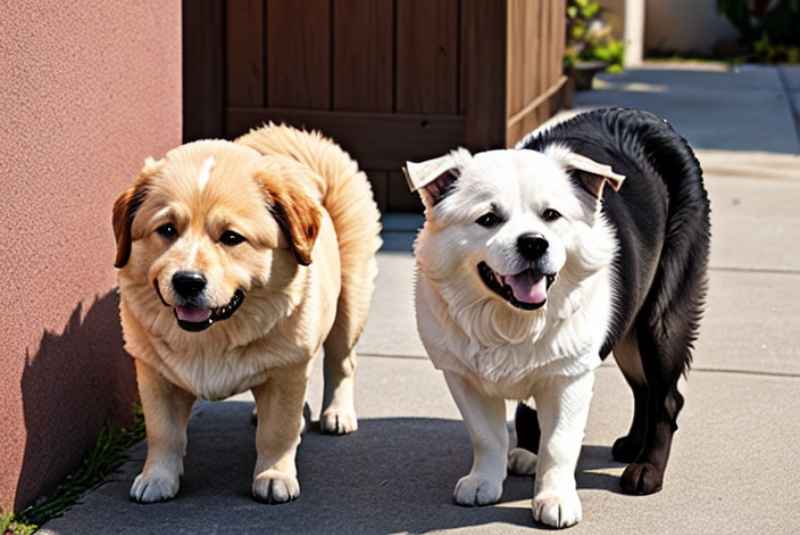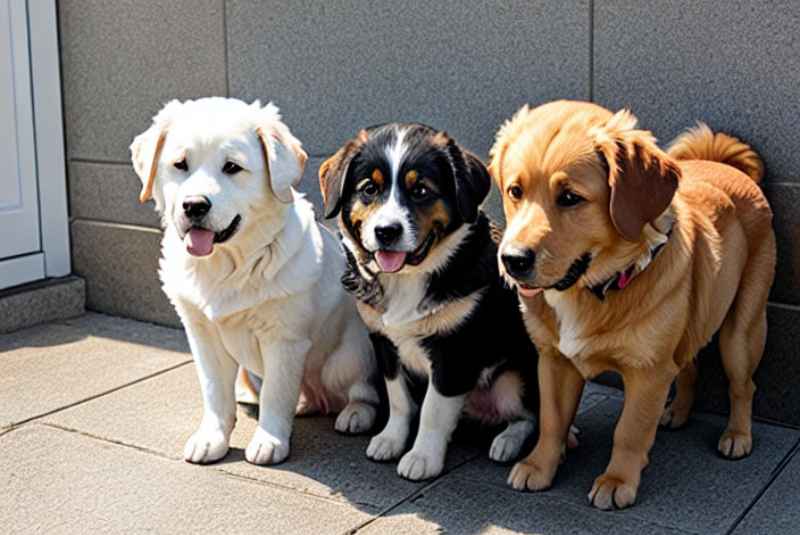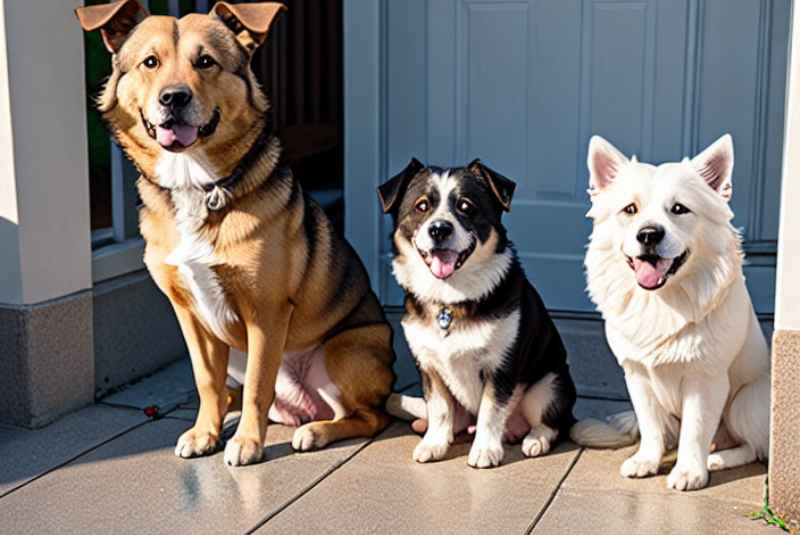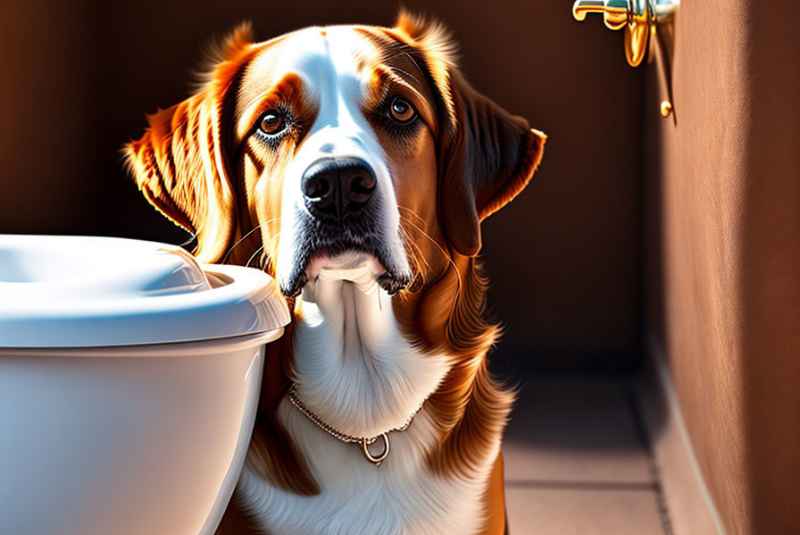Like people, our cherished furry friends’ bodies change as they become older, as shown in “The Urination Frequency of Senior Dogs?” The frequency with which older dogs urinate is one thing that pet owners might observe. In order to provide our aging canine friends with the best care possible, it is essential to comprehend the causes of these changes and how to manage them. In this post, we’ll examine the variables affecting older dogs’ urine patterns and discuss possible solutions.
Read This Also: How to Potty Train Your Dog?
Understanding The Urination Frequency of Senior Dogs?

1. What is Considered a Senior Dog?
It’s important to know when a dog is regarded as senior before diving into the subject. Dogs are often regarded as seniors when they reach the age of seven or older, though this might vary based on the breed and size of the dog. Their bodies naturally change as they age, including changes to their urination patterns.
2. Normal Urination Frequency in Dogs
Adult dogs normally urinate four to six times per day under normal conditions. On the other side, because of their developing bodies and smaller bladders, puppies may urinate more frequently. It’s important to be aware of a dog’s typical urinating patterns in order to spot any changes that could point to a problem.
3. Changes in Urination Frequency with Age
It’s typical to see changes in a dog’s urinating frequency as they become older. Some canines might start to urinate more regularly, while others might have trouble keeping their bladder for long periods of time. Age-related health issues are just one of the causes of these alterations.
Common Causes of Increased Urination in Senior Dogs
- Age-Related Health Conditions
Senior dogs may urinate more frequently due to certain age-related health issues. These could include disorders of the kidneys, the bladder, or the hormones. In order to quickly identify and treat these diseases, routine veterinary examinations are crucial.
- Incontinence
Senior dogs frequently experience incontinence, especially spayed females. Involuntary urination occurs when the bladder is unable to be controlled. While it may be upsetting for pet owners, incontinence can be properly managed with knowledge of the condition and medical guidance.
- Diabetes
Another potential factor in older dogs’ increased urination is diabetes mellitus. When the body doesn’t create enough insulin or react to it properly, this syndrome develops. The dog’s blood sugar levels increase as a result, which causes frequent urination and increased thirst.
- Urinary Tract Infections
UTIs are uncomfortable and may result in an unexpected increase in urine. Due to hormonal changes and weakening immune systems, older dogs, especially females, may be more prone to UTIs. It is essential to seek treatment very away to avoid problems.
Read This Also: Why Might Ants Be Attracted to Your Dog’s Poop?
Identifying Signs of Abnormal Urination

1. Frequent Urination
The Urination Frequency of Senior Dogs? pet owners should be alert to any unexpected rise in this behavior. A dog’s increased frequency of urination could point to a problem that needs to be looked at.
2. Excessive Water Consumption
Excessive water consumption frequently occurs in conjunction with increased urination. Senior dogs may need to have an underlying issue addressed if they are drinking much more water than they did previously.
3. Straining or Painful Urination
A urinary tract issue or incontinence may be indicated by straining or displaying pain while urinating. Any discomfort noticed during urination should necessitate a trip to the vet.
When to Consult a Veterinarian
Owners of senior dogs should not ignore changes in their dog’s urine patterns. Every time there is a discernible difference in frequency, volume, or any symptoms of discomfort during urinating, it is imperative to consult a veterinarian. The quality of life for the dog can be considerably enhanced by early detection and care.
Read More Discussion On Quora: Why would an older dog pee in the house?
Managing and Preventing Urination Issues in Senior Dogs

- Diet and Hydration
The Urination Frequency of Senior Dogs? need regular hydration and a balanced diet. Access to clean water and a well-balanced diet that supports urinary health can help in managing urination problems.
- Providing Regular Bathroom Breaks
Compared to younger dogs, senior dogs may need more frequent toilet breaks. Providing children with regular opportunities to go potty can help reduce accidents inside.
- Maintaining a Consistent Routine
The Urination Frequency of Senior Dogs? can be reduced by creating a schedule every day. Exercise, regular toilet breaks, and predictable meal times can all assist control their urination patterns.
- Using Dog Diapers or Belly Bands
Dog diapers or belly bands can be useful solutions to manage accidents and keep living spaces clean for dogs who are incontinent or have trouble controlling their urine.
Conclusion
in the above, we discuss The Urination Frequency of Senior Dogs? It is essential for giving them the attention and assistance they require as they age. It’s important to seek veterinarian care right away if your pet’s urinating patterns change since they may indicate underlying health problems. Senior dogs can live comfortable and contented lives with the assistance of their pet owners through balanced food, appropriate hydration, and a regular schedule.
How can I prevent urinary tract infections in my senior dog?
Ensuring your senior dog has regular bathroom breaks, maintaining proper hygiene, and providing access to fresh, clean water can help reduce the risk of urinary tract infections. Regular veterinary check-ups are also essential to detect any potential issues early.
Is it normal for senior dogs to have accidents indoors?
While accidents can happen as dogs age, they should not be considered normal. Accidents may be a sign of an underlying health problem, such as incontinence or an infection. Consulting a veterinarian can help identify and address the cause.
Can stress or anxiety cause changes in a senior dog’s urination habits?
Yes, stress or anxiety can affect a senior dog’s urination frequency. Significant life changes, such as moving to a new home or the addition of a new pet, can trigger stress-related urination issues. Providing a safe and comfortable environment can help alleviate anxiety.
Can certain breeds of dogs be more prone to urinary problems as they age?
Yes, certain breeds, especially small or toy breeds, may be more susceptible to urinary issues as they age. Additionally, spayed female dogs are at a higher risk of developing incontinence. Understanding your dog’s breed-specific needs can help you provide the best care and early detection of any problems.

1 thought on “The Urination Frequency of Senior Dogs? Full Explanation”